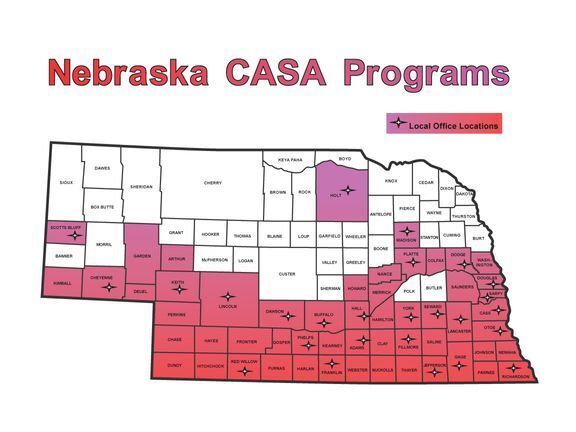
Home is synonymous with safety, comfort, and love for many children. However, for some, this sense of security can be disrupted when they are removed from their homes and placed into foster care due to circumstances beyond their control. This traumatic transition can be overwhelming, leaving children feeling lost and alone in a complex system.
Fortunately, Court Appointed Special Advocates (CASA) volunteers are crucial in guiding these children through the maze of family court and foster care, offering support and stability during an incredibly challenging time.
The Complex Journey Through Family Court
Removing children from their homes begins a journey through the family court system. This process involves numerous hearings, legal jargon, and decisions significantly impacting the child's future. Each case is unique, with different timelines and outcomes, but the common thread is the uncertainty and anxiety it creates for the child.
Family court aims to determine the best possible outcome for the child, whether that is reunification with their family, placement with relatives, or adoption by a foster family. However, navigating this system can take time and effort.
Children often find themselves overwhelmed by the legal proceedings, unable to understand or participate in the decisions about their lives fully.
The Role of CASA Volunteers
CASA volunteers help children navigate this maze and speak on their behalf in court. CASA stands for Court Appointed Special Advocates, a network of trained volunteers who judges appoint to advocate for children's best interests in the foster care system. CASA volunteers are not lawyers or social workers; they are ordinary people from the community committed to making a difference in the lives of vulnerable children.
Providing Consistent Support
One of the primary roles of a CASA volunteer is to provide consistent support to the child. Unlike caseworkers, who may have numerous cases to manage, a CASA volunteer is typically assigned to just one or two children at a time, allowing them to understand the child's needs and circumstances better.
They visit the child regularly, ensuring they have someone familiar and trustworthy they can rely on.
Advocating for the Child's Best Interests
CASA volunteers gather information from various sources, including foster parents, teachers, and therapists, to comprehensively understand the child's situation. They then present this information to the court, making recommendations that prioritize the child's best interests. These recommendations can influence crucial decisions, such as where the child will live and what services they will receive.
Facilitating Communication
Family court proceedings can be confusing for children. CASA volunteers help bridge the communication gap between the child and the court, explaining what is happening in a way that the child can understand. They ensure that the child's voice is heard and their wishes are considered in the court's decisions.
Supporting Reunification Efforts
When safe and appropriate, the goal of the family court is often to reunify the child with their family. CASA volunteers play a pivotal role in supporting these reunification efforts. They monitor the parents' progress, ensuring they comply with court orders and make necessary changes to provide a safe environment for the child. They also facilitate visits and maintain open communication between the child and their family, helping to rebuild and strengthen these critical relationships.
Providing Stability During Transitions
Transitions within the foster care system can be particularly challenging. Whether a child is moving to a new foster home, returning to their biological family, or being adopted, CASA volunteers provide stability and support throughout these changes. They prepare the child for what to expect and help them navigate transitions' emotional ups and downs.
Conclusion
The family court system can be a daunting maze for children in foster care, but CASA volunteers are there every step of the way, providing guidance, support, and advocacy. These dedicated individuals prioritize the child's best interests and ensure their voices are heard.
Through the consistent presence of a CASA volunteer, children in foster care can find hope, stability, and a path toward a brighter future, whether that involves reunification with their families or finding a new forever home.
CASA volunteers offer the personal touch and unwavering support that every child deserves in a system that can often seem impersonal and overwhelming.







